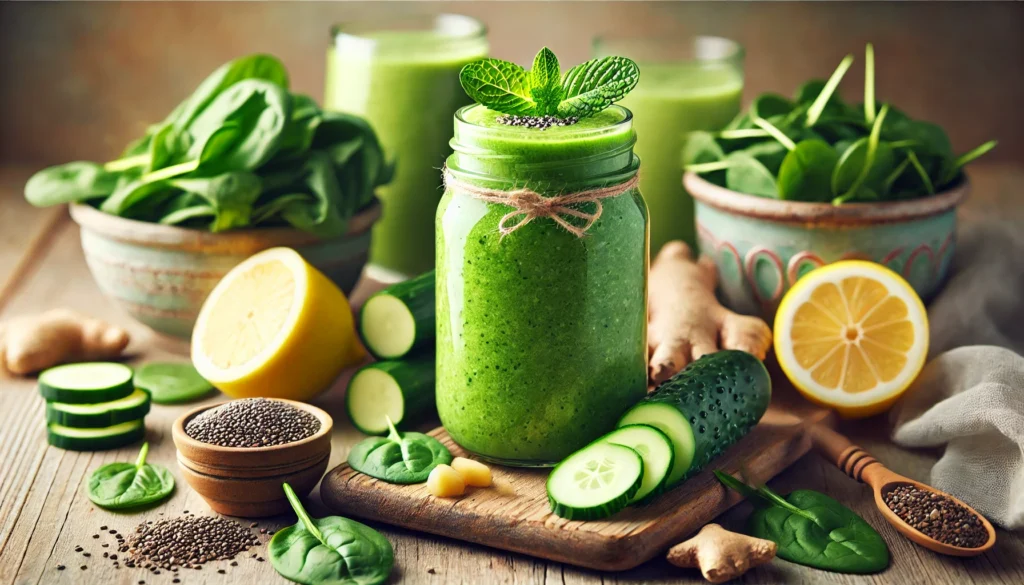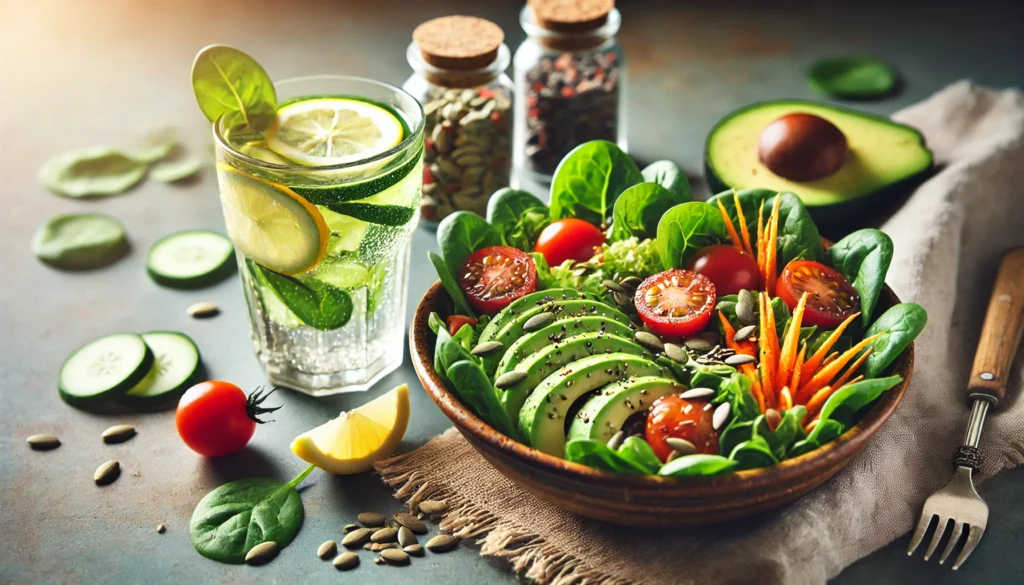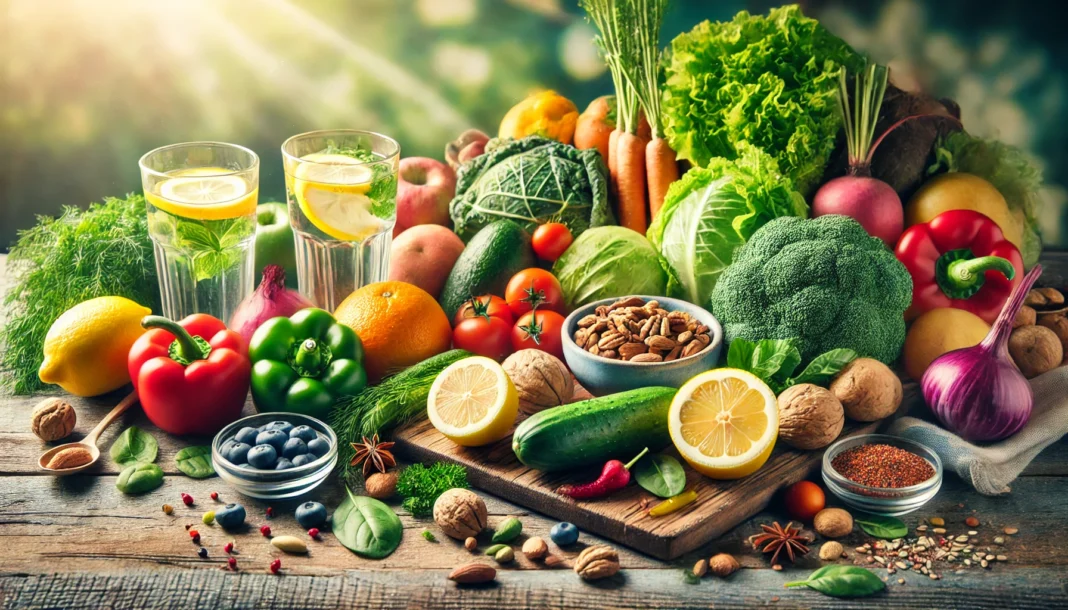Understanding the Impact of Processed Foods on Health
Processed foods dominate modern diets, contributing to various health concerns, including obesity, metabolic disorders, and inflammation. These foods are often high in refined sugars, unhealthy fats, and artificial additives that can negatively affect digestion, immune function, and overall well-being. When consumed frequently, processed foods can disrupt the body’s natural detoxification systems, overloading the liver and kidneys with synthetic compounds that are difficult to break down. This raises the question: how can individuals detox from processed foods to restore optimal health?
Eliminating processed foods from the diet requires a strategic and mindful approach. The body is equipped with mechanisms to filter out toxins, but excessive intake of artificial ingredients and preservatives can slow down these processes. Detoxification begins by identifying and reducing sources of processed foods, replacing them with whole, nutrient-dense alternatives. Detox fast food strategies help individuals transition away from unhealthy dietary habits, allowing the body to function more efficiently and absorb essential nutrients more effectively.
One of the biggest challenges of detoxing from processed foods is overcoming cravings. Processed foods are designed to be hyper-palatable, activating dopamine responses in the brain that create addiction-like effects. The sudden removal of these foods can result in withdrawal symptoms, such as fatigue, irritability, and headaches. Understanding these responses and gradually introducing whole foods into the diet ensures a smoother transition. With proper planning, detoxing from processed foods can lead to increased energy levels, improved digestion, and better mental clarity.
You May Also Like: How to Detox Your Body: Best Foods and Strategies for a Natural Cleanse
The Role of Whole Foods in Detoxifying the Body
Whole foods play a crucial role in the body’s natural detoxification process. These foods are rich in essential nutrients, fiber, and antioxidants, which help neutralize toxins and eliminate waste efficiently. Incorporating whole foods into the diet is the foundation of a successful detox from processed foods, as they support liver function, improve gut health, and stabilize blood sugar levels. The shift towards whole nutrition reduces dependency on artificial additives and promotes overall wellness.
Fresh vegetables and fruits are vital components of a whole-food detox. Leafy greens, such as kale, spinach, and arugula, contain chlorophyll, a compound known for its ability to bind to heavy metals and facilitate their removal from the body. Cruciferous vegetables like broccoli, Brussels sprouts, and cauliflower contain sulfur compounds that enhance liver detoxification enzymes, helping to break down harmful substances. Fruits like berries, citrus, and apples provide antioxidants that combat oxidative stress caused by processed food consumption.
Whole grains, legumes, and nuts also contribute to detoxification by providing fiber and essential micronutrients. Fiber promotes regular digestion, ensuring that toxins are effectively eliminated from the body. Legumes, such as lentils and chickpeas, offer plant-based protein and complex carbohydrates, which stabilize blood sugar levels and reduce processed food cravings. Healthy fats from sources like avocados, nuts, and seeds provide anti-inflammatory benefits that counteract the harmful effects of trans fats commonly found in processed foods.

Steps to Detox Fast Food and Reset the Body
Detoxing from processed foods requires a step-by-step approach that prioritizes sustainable dietary changes. The process begins with eliminating obvious sources of fast food and packaged meals while gradually introducing whole-food alternatives. By following practical steps, individuals can successfully detox fast food from their diets without feeling deprived or overwhelmed.
Hydration is an essential first step in the detox process. Drinking plenty of water supports kidney function, flushes out toxins, and aids digestion. Herbal teas, such as dandelion and ginger tea, provide additional detoxifying benefits by reducing inflammation and promoting liver function. Proper hydration also reduces cravings for sugary beverages, which are a major source of empty calories and artificial additives.
Meal planning is another critical aspect of detoxing from processed foods. Preparing meals at home using fresh ingredients allows individuals to control portion sizes and nutrient intake. Cooking methods such as steaming, roasting, and grilling help preserve the nutritional integrity of whole foods. Establishing a routine that includes balanced meals rich in protein, healthy fats, and fiber ensures satiety and reduces the likelihood of reverting to processed food consumption.
Mindful eating practices further enhance the detox process by fostering a conscious relationship with food. Eating slowly, savoring flavors, and paying attention to hunger cues prevent overeating and encourage better digestion. Reducing distractions, such as television or mobile devices during meals, allows individuals to fully engage with their food and appreciate the benefits of whole nutrition. By prioritizing these habits, individuals can successfully detox from processed foods while fostering a long-term commitment to healthier eating.

Overcoming Challenges and Maintaining a Whole-Food Diet
Detoxing from processed foods can present several challenges, including cravings, social pressures, and the accessibility of whole foods. Understanding how to navigate these obstacles is essential for maintaining long-term success. The transition may be difficult initially, but with proper strategies, individuals can build sustainable habits that support their health goals.
One of the most effective ways to overcome cravings is to identify healthier alternatives that satisfy similar taste preferences. For example, swapping out sugary snacks for naturally sweet fruits or replacing refined carbohydrates with whole grains can ease the transition. Incorporating healthy fats and protein into meals also reduces cravings by promoting satiety and stabilizing blood sugar levels. The key is to focus on nutrient-dense foods that nourish the body while reducing dependence on processed ingredients.
Social situations can also pose challenges when detoxing from processed foods. Dining out with friends or attending events often involves exposure to fast food and highly processed options. Planning ahead by reviewing menus, bringing homemade snacks, or suggesting restaurants that offer whole-food options can make social gatherings more manageable. Educating family and friends about dietary changes can also encourage a supportive environment that reinforces healthy eating habits.
Additionally, ensuring access to fresh, whole foods is crucial for maintaining dietary consistency. Shopping at local farmers’ markets, choosing organic produce when possible, and preparing meals in advance help individuals stay on track. Keeping nutrient-dense snacks readily available, such as raw nuts, hummus with vegetables, or homemade smoothies, prevents impulsive processed food choices. By prioritizing convenience without sacrificing nutritional quality, individuals can sustain their detox from processed foods long term.

Frequently Asked Questions (FAQ) About Detoxing from Processed Foods
1. How does detoxing from processed foods improve long-term health?
A detox from processed foods benefits long-term health by reducing inflammation, stabilizing blood sugar levels, and improving digestive function. Processed foods contain artificial additives, preservatives, and unhealthy fats that contribute to metabolic imbalances and chronic diseases over time. Eliminating these foods and replacing them with whole, nutrient-dense options helps restore gut health, strengthen the immune system, and enhance overall energy levels. Additionally, detoxing from processed foods can lead to clearer skin, improved sleep, and better mental focus by reducing the toxic load on the liver and other detoxification organs. Over time, maintaining a diet rich in whole foods ensures sustained well-being and reduces the risk of conditions such as diabetes, obesity, and cardiovascular disease.
2. What are the first signs that your body is detoxing from processed foods?
When you begin a detox from processed foods, your body may initially go through withdrawal-like symptoms as it adjusts to a cleaner diet. Common signs include headaches, fatigue, irritability, and increased cravings, as the body reacts to the removal of sugar, refined carbohydrates, and artificial additives. However, after the initial adjustment phase, most people experience increased energy, improved digestion, and clearer skin as toxins are eliminated. Better hydration, reduced bloating, and improved mood regulation are also indicators that the body is adapting to a more natural, whole-food-based diet. The key is to stay consistent, allowing your body the time it needs to recalibrate and fully benefit from the detox process.
3. How long does it take to detox fast food and processed ingredients from the body?
The timeline for a successful detox from processed foods varies depending on an individual’s previous diet, metabolism, and overall health. In general, the body begins responding to the absence of processed foods within 48 hours, with noticeable improvements in energy and digestion within a week. Within two to three weeks, most people experience significant reductions in sugar cravings, bloating, and inflammation. By the one-month mark, the body has typically reset its natural detoxification processes, and long-term benefits, such as better skin health and improved gut microbiome, become more apparent. Consistently choosing whole foods after detoxing fast food and processed items ensures these benefits are sustained over time.
4. Can detoxing from processed foods help with weight loss?
Yes, detoxing from processed foods often leads to weight loss due to reduced calorie intake, improved metabolism, and decreased water retention caused by excess sodium and artificial additives. Processed foods are typically high in refined carbohydrates and unhealthy fats, which contribute to blood sugar spikes and increased fat storage. By switching to whole, nutrient-dense foods, the body stabilizes its energy levels, leading to better appetite control and a natural reduction in calorie consumption. Additionally, detox fast food strategies that incorporate fiber-rich foods, lean proteins, and healthy fats promote satiety, reducing the urge to overeat. Weight loss becomes a sustainable outcome rather than a temporary effect when processed foods are consistently minimized.
5. How can you detox from processed foods without feeling deprived?
Detoxing from processed foods does not have to feel restrictive if you focus on nutrient-rich alternatives that satisfy cravings. Instead of cutting out foods entirely, replace processed snacks with whole-food options such as nuts, seeds, and fresh fruits. Cooking meals at home allows you to control ingredients while experimenting with flavorful herbs and spices to enhance natural flavors. Gradually transitioning instead of abruptly eliminating processed foods helps minimize withdrawal symptoms and makes the process more sustainable. Prioritizing healthy fats and proteins also reduces cravings by keeping blood sugar levels stable, ensuring a smoother transition to a whole-food diet.
6. How does a detox from processed foods impact digestion and gut health?
A detox from processed foods significantly improves digestion by eliminating artificial additives that disrupt gut microbiome balance. Whole foods, particularly fiber-rich fruits, vegetables, and whole grains, promote healthy digestion by supporting regular bowel movements and reducing bloating. The absence of highly processed ingredients, such as artificial sweeteners and preservatives, allows beneficial gut bacteria to thrive, improving nutrient absorption and immune function. Processed foods often contribute to inflammation in the gut lining, leading to issues such as leaky gut and irritable bowel syndrome (IBS), which can be alleviated through a whole-food diet. Over time, a diet free from processed ingredients fosters a healthier, more resilient digestive system.
7. What are the best whole foods to eat when detoxing fast food from your diet?
When detoxing fast food from your diet, prioritize nutrient-dense whole foods that provide essential vitamins, minerals, and fiber. Leafy greens, such as spinach, kale, and arugula, help alkalize the body and support liver detoxification. Fiber-rich foods like legumes, whole grains, and chia seeds promote digestion and stabilize blood sugar levels. Lean proteins from sources like wild-caught fish, organic poultry, and plant-based options, such as lentils and quinoa, provide sustained energy. Healthy fats from avocados, nuts, and olive oil support hormone balance and brain function while reducing inflammation. These whole-food choices create a balanced diet that sustains long-term detoxification and overall health.
8. How can you manage social situations while detoxing from processed foods?
Navigating social situations during a detox from processed foods requires preparation and mindful choices. If dining out, check menus in advance and opt for dishes that emphasize whole, unprocessed ingredients, such as grilled proteins, fresh salads, and vegetable-based sides. Bringing your own healthy snacks, such as raw nuts or fruit, can prevent impulsive processed food choices when attending social gatherings. Communicating your dietary preferences with friends and family helps create a supportive environment that minimizes pressure to consume processed foods. If consuming alcohol, choosing natural options like dry wine or cocktails made with fresh ingredients can reduce exposure to artificial sweeteners and preservatives. Over time, finding balance in social settings becomes easier as clean eating habits become more ingrained.
9. What psychological benefits come with detoxing from processed foods?
Detoxing from processed foods not only improves physical health but also enhances mental well-being and emotional stability. Processed foods high in sugar and artificial additives contribute to energy crashes, mood swings, and increased stress levels due to their impact on blood sugar and neurotransmitter function. Eliminating these foods helps stabilize mood by reducing inflammation and promoting the production of serotonin, a neurotransmitter associated with happiness. Many individuals report feeling more emotionally balanced, less anxious, and more focused after switching to a whole-food diet. Over time, the psychological benefits of eating unprocessed foods contribute to a greater sense of well-being and mental clarity.
10. How can you maintain a whole-food diet after completing a detox from processed foods?
Sustaining a whole-food diet after a detox from processed foods requires long-term planning and mindful eating habits. Meal prepping in advance ensures access to nutritious meals, reducing the temptation to revert to processed options. Shopping primarily in the produce, meat, and bulk-food sections of grocery stores helps avoid processed food aisles and encourages whole-food purchases. Continuing to explore new whole-food recipes and incorporating seasonal ingredients keeps meals exciting and flavorful. Practicing mindful eating, such as recognizing hunger cues and avoiding emotional eating triggers, reinforces a healthier relationship with food. Ultimately, making clean eating a lifestyle rather than a temporary detox ensures ongoing health benefits and long-term success.
Conclusion: Embracing a Lifestyle Free from Processed Foods
Detoxing from processed foods is more than a temporary dietary change—it is a commitment to long-term health and wellness. By eliminating artificial ingredients, unhealthy fats, and excessive sugars, individuals can restore balance to their bodies and experience improved energy levels, digestion, and mental clarity. Transitioning to whole foods provides essential nutrients that support detoxification while fostering a deeper connection with natural nutrition.
Understanding how to detox fast food and reset the body with whole nutrition empowers individuals to make informed dietary choices. A well-planned approach that includes hydration, mindful eating, and meal preparation enhances the detox process and promotes sustainable habits. Overcoming initial challenges and embracing a whole-food lifestyle leads to lasting health benefits and reduces reliance on processed food consumption.
By committing to a clean and nourishing diet, individuals can achieve optimal well-being while minimizing exposure to harmful additives. Detoxing from processed foods allows the body to function at its best, supporting overall vitality and longevity. As awareness grows about the importance of whole nutrition, more individuals can take proactive steps toward a healthier, more balanced way of eating.
whole food detox, eliminate processed foods, detox fast food, healthy eating habits, reset metabolism, clean eating strategies, avoiding artificial additives, processed food withdrawal, long-term dietary changes, meal planning for detox, benefits of whole foods, improving digestion naturally, mindful eating techniques, reducing food cravings, nutrition for energy, how to detox from processed foods, transition to clean eating, liver detox support, hydration and detox, sustainable healthy diet
Further Reading:
Ultra-Processed Food Addiction: A Research Update
Withdrawal: A key consideration in evaluating whether highly processed foods are addictive

